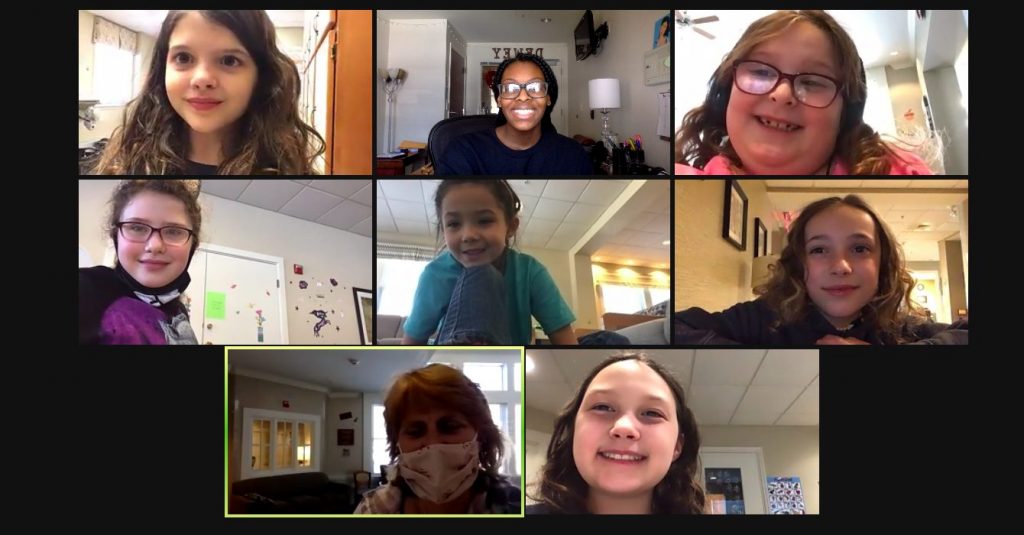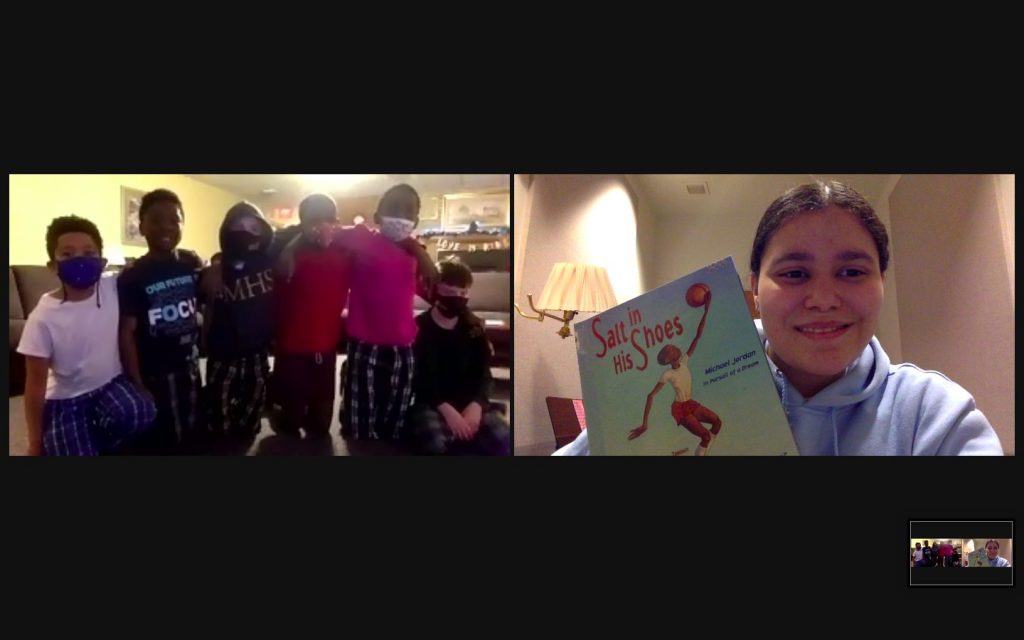Milton Hershey School Spartans Celebrate Black History Month
In honor of Black History Month, Milton Hershey School Senior Division students are celebrating Black voices by reading books to Elementary Division students.
MHS Spartan Community OutReach (SCOR) started this program last school year through the Student Government Association as a way for older students to connect with and mentor younger students at MHS.
This year, the reading program continued virtually spearheaded by the Elementary Houseparents Teacher Advisory with more than 40 Senior Division students signed up to read a story which they prerecorded for Flip Grid or presented live through Zoom.

“I think it’s important for older students to mentor younger students because we know what they’re going through as Milts,” said Madison Shaw, MHS student. “Many of us have been at MHS since we were young, but all of us went through elementary school somewhere. I think it’s our responsibility to give back to the younger kids.”
Some of the themed books on this year’s booklist include: “You Are Beautiful,” “The First Step-Segregation Trial,” “Art from the Heart,” “A Splash of Red,” “Words Set Me Free,” and “The Skin You Live In.”
“The response from our students has been overwhelming,” said Megan Kopp, MHS Student Government Association Advisor. “The spots fill up within minutes. Our older Spartans are always enthusiastic about working with our youngest Spartans and it is really inspiring.”

The community can celebrate Black History Month from home by reading Black authors, elevating Black voices, and understanding Black history.
“I think the start of celebrating Black History Month begins with education,” said Kylinda Webb, MHS student. “By educating a community on the history of Black Americans—how far we’ve grown as a society but also reminding us how much room for growth there still is—is the best way to celebrate.”

